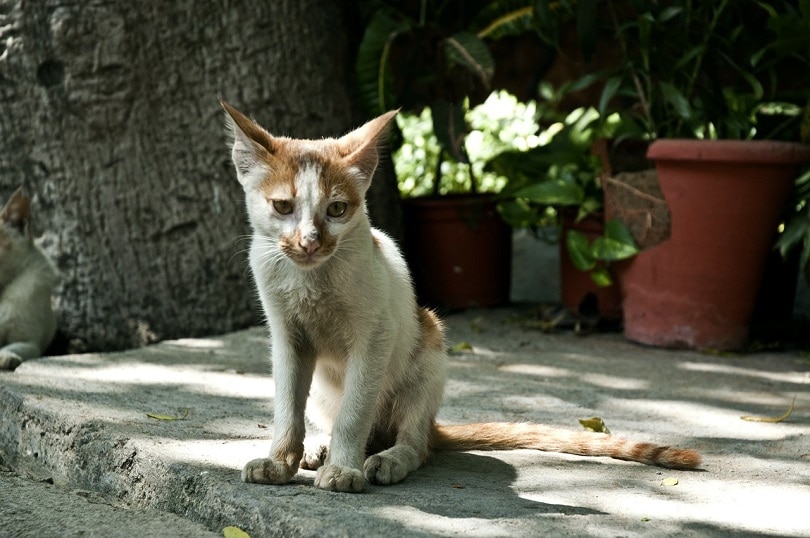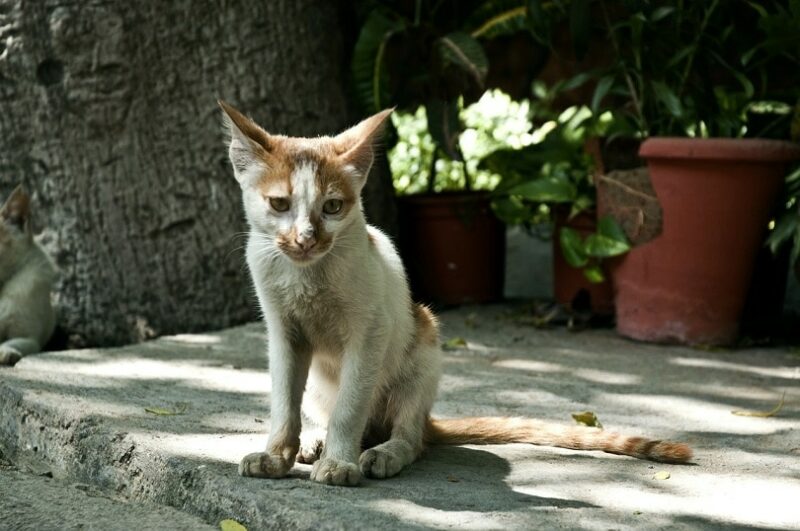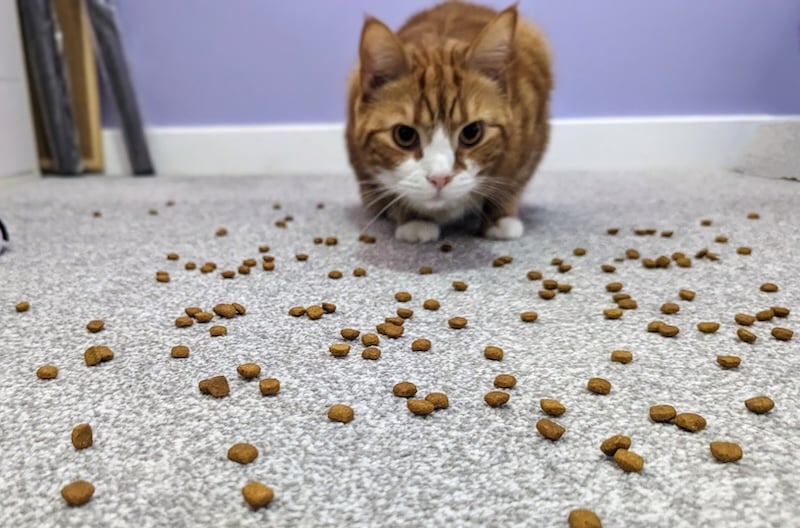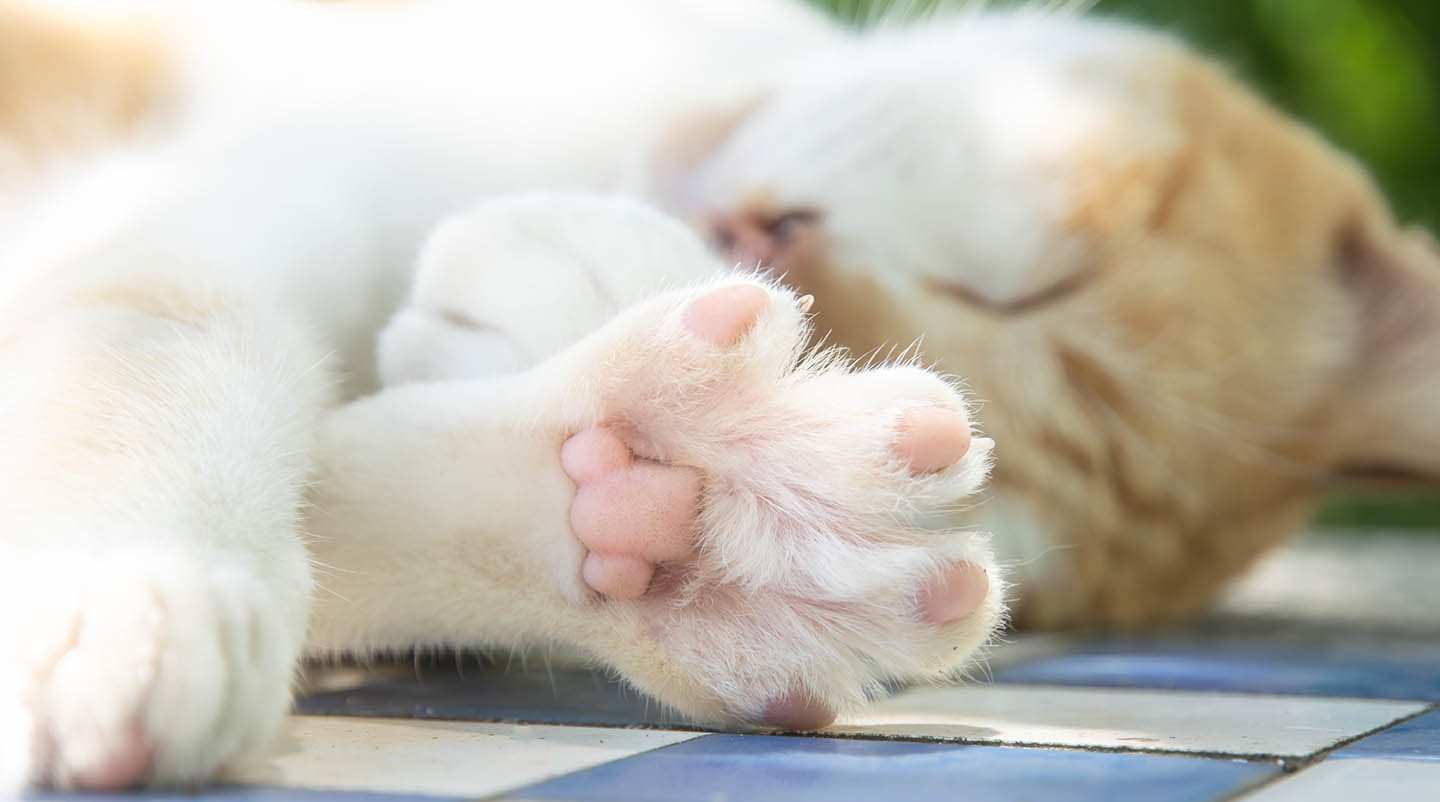If you have noticed that your cat is looking a little leaner than normal recently, then you might also be wondering why this is. Many older cats, in particular, lose weight — but why? This article explores some of the possible reasons that your cat is losing weight, as well as what you should do about it!
The 9 Reasons Why Your Cat is Losing Weight
There are several different reasons that your cat could be losing weight. The following is a list of some of the more common causes of weight loss:
1. Dental & oral issues
Cats with sore teeth may be less likely to eat and could struggle with their dry food. Cats can also suffer from oral ulcers and inflammatory conditions that may affect their appetite. Your cat may paw at his face, drool, or make odd chewing sounds, as well as reducing the amount of food he eats. Treatment may involve a dental procedure to extract any problem teeth.
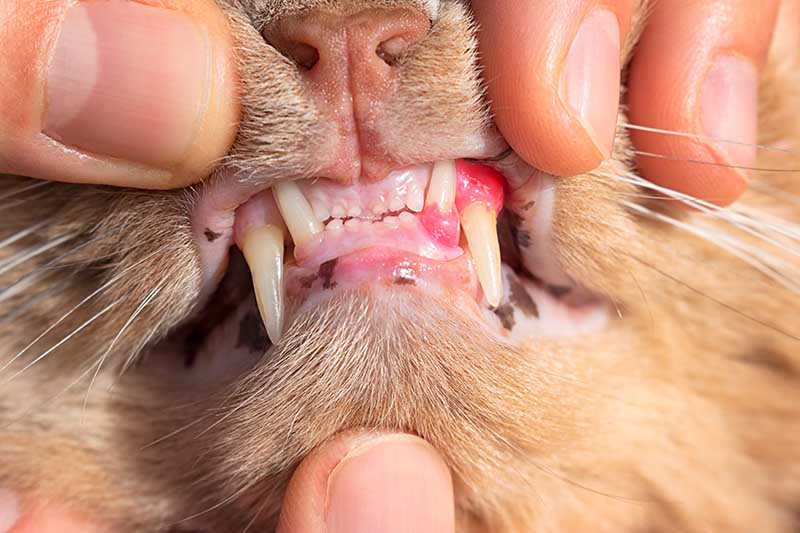
2. Hyperthyroidism
This condition describes an overactive thyroid gland which is a common condition in older cats. The thyroid gland in the neck controls metabolism and in some cats, it can become enlarged, producing too much thyroid hormone. This speeds up the cat’s metabolism and causes weight loss. Hyperthyroidism is the most common reason that a cat will lose weight and still be eating. There are a few different treatment options available to help control hyperthyroidism.
3. Chronic kidney disease
Another common illness in older cats. The kidneys gradually become inflamed and fibrotic (scarred) and stop working as effectively. This can cause cats to lose weight, but also to drink more than usual too. Changes in diet and medications can help cats with this progressive illness.
4. Diabetes mellitus
This condition occurs when your cat’s pancreas is not producing enough insulin and their blood sugar levels are not properly controlled. This can lead to changes in weight and appetite, as well as issues with the nervous system and eyesight problems. Insulin treatment and diet changes are recommended to help these cats.
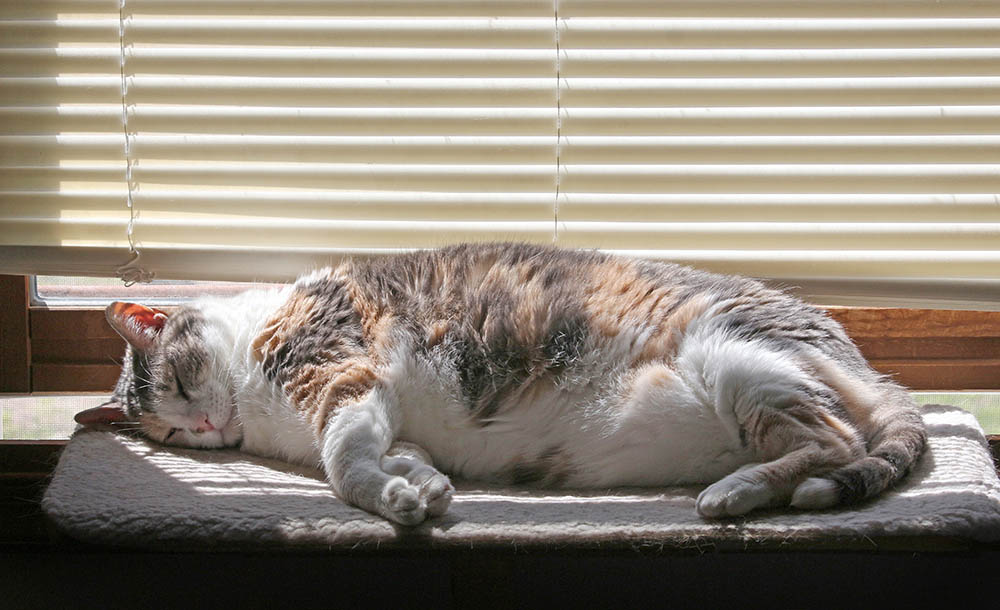
5. Gastrointestinal problems
Conditions like inflammatory bowel disease, pancreas issues, or dietary sensitivities can cause vomiting and/or diarrhea in cats which can contribute to weight loss. Changes in diet and certain medications could be advised.
Parasites
Heavy worm burdens could cause weight loss, although this is not a common cause of weight loss in adult cats.
6. Stress
Cats that are suffering from stress can go off their food. Examples include cats that have recently moved house, or had a new animal move into their home.
7. Neoplasia (cancer)
All sorts of cancer types exist, and many will cause weight loss. Examples include tumors in the mouth or throat, tumors in the chest, and also abdominal tumors such as lymphoma of the gastrointestinal tract.
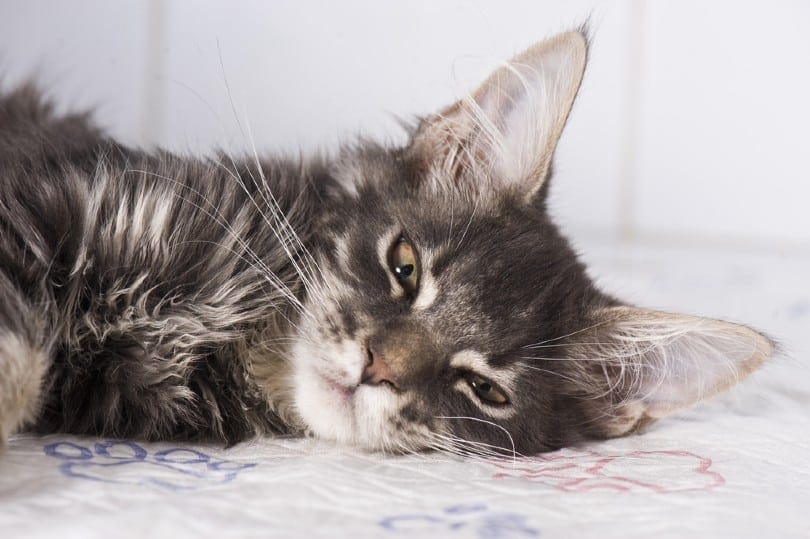
8. Changes in diet
Not receiving enough nutrition or the right type of nutrition can contribute to weight loss. You should always check the feeding guidelines and make sure you are feeding the correct amount of a complete balanced diet to your cat.
9. Arthritis
In some older cats, arthritis can cause a reduction in muscle condition. When they aren’t exercising as much as normal, they can lose muscle mass making them look thinner. They may also weigh a bit less on the scales, but it’s important that these cats aren’t fed high-calorie foods, as they don’t need to put on extra fat!
It can be quite hard to tell which of these reasons is causing your cat’s weight loss without doing some further investigation, so it’s best to head to the vet and ask their advice.
Why is My Cat Losing Weight but Still Eating?
Some cats can lose weight despite having a good appetite. Cats with hyperthyroidism will often present like this. The increase in their metabolism usually causes them to have an excellent appetite but their weight will drop as they are burning energy. Cats with diabetes can be similar. Some cats with tummy problems can have a keen appetite but lose weight through vomiting and diarrhea.
What Will My Veterinarian Do?
Your veterinarian will usually start with a physical examination, to look for signs of dental disease but also to check for any physical abnormalities such as an enlarged thyroid gland. They will listen to your cat’s chest to assess their heart and lungs, and also feel their abdomen for any issues. Your vet will weigh your cat and may be able to check it against any previously recorded weights to get an idea of the severity of their weight loss.

It may be recommended that your cat has further tests such as blood work and urine samples. Blood samples can check for a few different health complaints. An elevation in kidney values can be an indicator that your cat’s kidneys are struggling to function well, or a raised thyroid hormone will help diagnose hyperthyroidism and a high blood sugar level can point towards diabetes. A urine sample is often used as well to confirm the diagnosis of some of these conditions.
Your veterinarian may need to suggest diagnostic imaging in some cases, such as X-rays or ultrasound, especially when the initial results aren’t pointing to a problem. This doesn’t mean the blood tests weren’t needed though – they’re a great way to rule out lots of common conditions. Whilst it can feel frustrating getting a negative result, your vet is working through a list of possibilities, and crossing lots of them off with a negative result is useful too!
Treatment options will then be discussed depending on your veterinarian’s findings.

Is Weight Loss Normal in Older Cats or a Cause for Concern?
Many older cats lose a bit of weight as they get older, small amounts can be normal but larger decreases are often due to an underlying health problem.
You should always take your cat to your veterinarian as soon as you think there may be an issue. Many of the conditions that we have described do far better if you intervene early. So, if you suspect that your cat is losing weight or has any other symptoms then take them for a check-up! If your veterinarian can’t identify any cause for concern then at least you can put your mind at rest.
If your vet rules out common conditions, a small amount of weight loss may not be a big concern. However, you should start to weigh your cat regularly to see if his weight continues to fall over time so that you can intervene if necessary.
What Happens if a Cat Loses Too Much Weight?
If a cat loses too much weight it can start to become weakened and less able to fight off infections. The underlying complaint is also progressing during this time and could be causing other health issues in addition to the weight loss itself. Left untreated your cat could start to suffer from blood pressure issues, pain or problems with vomiting and diarrhea.

Conclusion
There are a number of reasons your cat could be losing weight. The best thing to do is to take your cat to the veterinarian so that they can try and work it out for you! They will also be able to suggest whether any treatments or diet changes are required, so book an appointment sooner rather than later to get your pet checked out.
Want more free vet advice? Check out some of our other Ask-a-Vet posts:
- My Cat is Suddenly Pooping a Lot: Is it Normal? (Vet Answer)
- My Cat’s Nose is Dry: Is This Normal? (Vet Answer)
Featured image credit: Hanish, Pixabay

